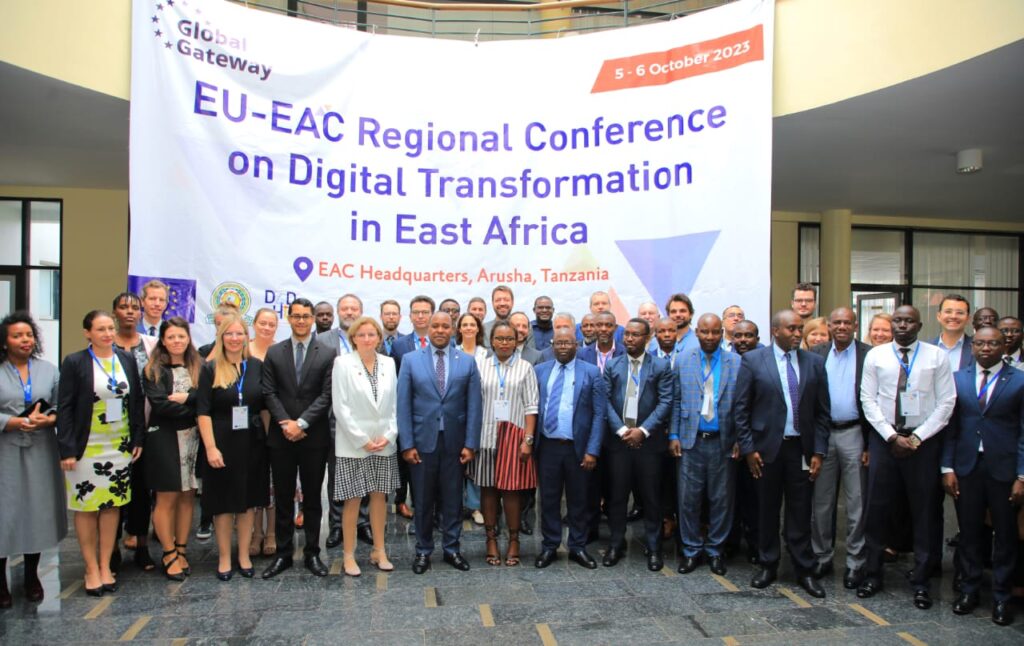- The World Bank is set to finance a new digital harmonization project across EAC member states.
- Currently, internet prices in the region range from $4.64 in Kenya to $21.06 in South Sudan.
- Integrated connectivity is poised to improve regional trade and boost integration efforts.
EAC internet prices vary greatly among East African countries even though the region boasts of being a single, integrated entity, the East African Community (EAC). The region is, however, taking action to integrate its connectivity, in particular, lowering by seeking to cut present high internet connection fees and improving cyber security as well.
This ambitious goal is set to be achieved through a new World Bank-backed platform, Eastern Africa Regional Digital Integration Project (EARDIP). Funded by the World Bank, the EARDIP is an undertaking under the Intergovernmental Authority on Development (IGAD).
To achieve these two basic goals— lower internet and telecommunication fees and improved security— the project has to take into account the significant gaps in digital infrastructure, which hampers access to high-speed internet.
There is also grave disparity of modern communication systems and reliability of digital services in general, factors that must be addressed if the EAC is to enjoy harmonized digital connectivity.
“For example, rural communities are often excluded from the digital economy, limiting their ability to access essential services such as e-commerce, online education and telemedicine,” commented the EAC Deputy Secretary-General in charge of Customs, Trade and Monetary Affairs, Ms. Annette Ssemuwemba.
Speaking during an EARDIP Regional Coordination and Implementation Workshop in Dar es Salaam, Tanzania, She pointed to the fact that, “inconsistent infrastructure across borders impedes seamless cross-border communication and collaboration which in turn affects regional integration and trade.”
“This project will create a more interconnected, inclusive, and prosperous region. We are laying the foundation for a thriving digital economy that will benefit businesses and citizens alike,” she informed media at the workshop.
In her view, once in place and working to capacity, the EARDIP will serve to unlock the region’s potential, creating opportunities for innovation, trade, and economic growth that will uplift millions.
“It will also ensure that no one is left behind as we transition to a more digital and interconnected future,” said the diplomat.
Seconding her optimism, the IGAD Director of Economic Cooperation and Regional Integration, Dr. Mohyeldeen Eltohami Taha, described the EARDIP as a bold step towards a more connected and integrated Eastern Africa.
“By working together, we are setting the stage for a digital revolution that will boost economic resilience, improve service delivery, and enhance regional integration,” Dr. Taha expounded.
Should it work as envisioned, Dr. Taha views the project as having the capacity to empower the people of Eastern Africa with the tools they need to utilize the global digital economy.
Speaking for the project funders, the World Bank Senior Digital Development Specialist, Ms. Cecilia Paradi-Guilford, stated, “The World Bank is proud to support EARDIP, as we believe that digital integration is key to unlocking the full potential of Eastern Africa.”
She added, “By funding this initiative, we aim to bridge connectivity gaps, lower the cost of digital services and foster inclusive growth. Our goal is to ensure that this project not only enhances economic opportunities but also improves access to essential services for millions of people across the region.”
She underlined the core purpose of the EARDIP is to “overcome significant barriers currently affecting the digital economy in Eastern Africa, particularly connectivity, cyber security and access to online markets.”
Also read: China’s $4.6Bn loans to Africa signal strategic shift ahead of key forum
The connected few: EAC internet disparity
According to a 2021 report by the International Telecommunication Union (ITU), the price of two (2) gigabytes data packages in coastal versus landlocked countries ranged from $4.64 in Kenya to $21.06 in South Sudan.
Titled, Measuring Digital Development: ICT Price Trends, the report shows that “many land-locked countries in the region face very high cost and lower quality internet, which further hinders affordability and accessibility.”
The World Bank backed project aims to bridge this gap by establishing a unified and comprehensive digital network that connects even the most isolated areas of the region. Further, it aims at promoting equitable access to digital resources and facilitate cross-border communication, trade and investment.
“By lowering the cost of internet access and improving infrastructure, EARDIP is expected to provide millions of people, including those in rural and underserved areas, with affordable and reliable digital services,” reads the report.
The project will in effect harmonise EAC’s digital policies and regulations, facilitate smoother cross-border trade and communication, foster greater regional integration and increase economic cooperation.
While East Africa is joining the rest of the world in its reliance on digital platforms for communication, commerce and public services, the region lacks the necessary basic infrastructure for cyber security. As a result, the digitized EAC faces data breaches, hacking and cyberattacks.
“Without adequate protections in place, the rapid digital transformation may lead to significant financial losses, compromise sensitive information and disrupt essential services such as utilities, healthcare, banking, transport and government operations,” warns the report.
That been the case, it follows that the lack of preparedness further complicates cross-border collaboration because of inconsistent security measures across the border.
That is the purpose of the EARDIP, to establish a comprehensive regional cyber security framework designed to safeguard digital infrastructure and protect users across member states, the workshop media communiqué explains.
“This includes implementing unified cyber security policies, sharing threat intelligence, and providing resources for capacity building in cyber security skills,” the report details.
What the EAC hopes to gain from digital integration
Patrons at the EARDIP Regional Coordination and Implementation Workshop were informed that it is by promoting collaboration among the EAC countries, that they can hope to create a secure and resilient digital ecosystem that can withstand and respond to cyber threats more effectively.
“This will not only enhance the safety and reliability of digital services but also foster trust among users, businesses, and governments…and encourage further investment and engagement in the region’s digital economy.”
With improved digital connectivity, the project aims to improve cross-border trade and payments.
“One of the major hurdles to expanding the regional online market in Eastern Africa is the lack of integrated and seamless cross-border payment systems. Currently, differing regulations, limited infrastructure, and high transaction costs hinder efficient cross-border trade and payments, particularly for small and medium enterprises (SMEs),” the workshop patrons were told.
“Without streamlined payment systems, consumers face delays and extra costs in conducting remote transactions, making it difficult to foster a competitive and inclusive digital economy,” it was concluded.
In this regard, for example, Kenya and Ethiopia, two neighbours and the biggest economies in East Africa, barely trade with one another. According to the report, in 2023, the EAC total trade was $80.6 billion, while intra-EAC trade accounted for only $12.1 billion, that is a mere 15 per cent of the bloc’s total trade.
EARDIP is poised to establish policies and regulations that will enable smooth cross-border transactions such as e-signatures and interoperable payment systems. It will also put in place a legal framework to support remote transactions and facilitate efficient digital service delivery.
By so doing, the EARDIP will accelerate growth of a secure, accessible, and integrated regional online market and go a long way to support the EAC’s journey to economic integration.




